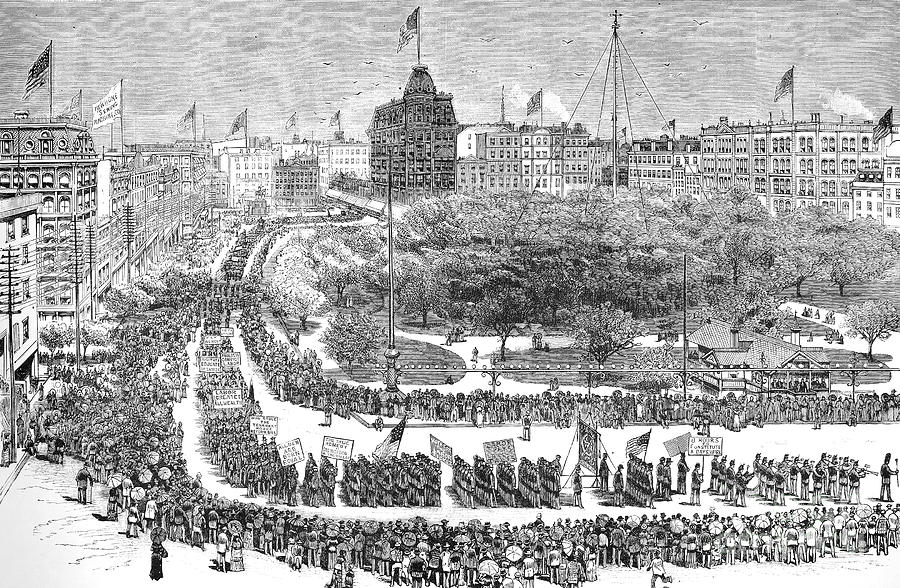09-01-2013, 03:35 PM
Too bad there are hardly any union members to march any more.

First Labor Day Parade New York City 1882
from here>>> http://www.mercurynews.com/opinion/ci_23...ay-weekend
There is debate as to who suggested the idea of such a holiday. Suffice it to say, the notion first surfaced in the 1880s during the early days of the American labor movement. Cities on the East Coast set aside a day to honor workers in their towns. But Oregon was the first state to declare such a holiday.
Many other states followed closely behind in the early 1890s and momentum was building. But it was the horrible events surrounding the infamous Pullman strike in 1894 that moved Congress and President Grover Cleveland to swiftly coalesce around declaring Labor Day a national holiday.
What was originally a strike and boycott of the nation’s freight and passenger traffic west of Detroit eventually devolved into riots that led to the death of 30 people at the hands of the U.S. military and the U.S marshals, not to mention more than $80 million in damage.
Following that disaster, Congress unanimously — yes, unanimously — took a mere six days — yes, six days — to send a bill to Cleveland’s desk creating Labor Day as a national holiday. He signed it, immediately creating the first national holiday later that year.

First Labor Day Parade New York City 1882
from here>>> http://www.mercurynews.com/opinion/ci_23...ay-weekend
There is debate as to who suggested the idea of such a holiday. Suffice it to say, the notion first surfaced in the 1880s during the early days of the American labor movement. Cities on the East Coast set aside a day to honor workers in their towns. But Oregon was the first state to declare such a holiday.
Many other states followed closely behind in the early 1890s and momentum was building. But it was the horrible events surrounding the infamous Pullman strike in 1894 that moved Congress and President Grover Cleveland to swiftly coalesce around declaring Labor Day a national holiday.
What was originally a strike and boycott of the nation’s freight and passenger traffic west of Detroit eventually devolved into riots that led to the death of 30 people at the hands of the U.S. military and the U.S marshals, not to mention more than $80 million in damage.
Following that disaster, Congress unanimously — yes, unanimously — took a mere six days — yes, six days — to send a bill to Cleveland’s desk creating Labor Day as a national holiday. He signed it, immediately creating the first national holiday later that year.




